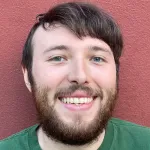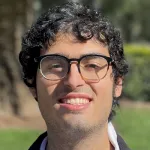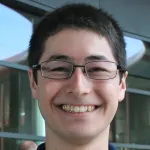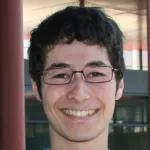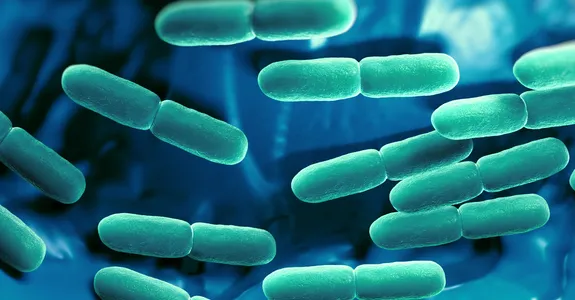
Dr. Dan Jarosz is an Associate Professor of Chemical and Systems Biology and of Developmental Biology at Stanford University. He is also a fellow of ChEM-H and a member of the Stanford Cancer Institute, Stanford Neurosciences Institute, and Bio-X. Dan received his B.S. in Chemistry from the University of Washington, where he also minored in Physics as part of the Early Entrance Program. He then moved to MIT to obtain a PhD in Biochemistry, where his thesis work established the function of a low-fidelity DNA polymerase with roles in cancer and infectious disease, and identified means through which its activity is regulated in normal biology and disease states.
Following his graduation in 2007, Dan pursued postdoctoral training in genetics and cell biology as a Damon Runyon Cancer Research Foundation Fellow at the Whitehead Institute for Biomedical Research. Here his work centered on the molecular chaperone Hsp90 – the so called ‘cancer chaperone’ – and its relationship to the capacity of genetic variation to produce new phenotypes. He also pioneered high throughput screening methods to investigate the physiological consequences of prion-like protein aggregation.
In 2013, Dr. Jarosz joined the Stanford faculty where the long-term goal of his NIH- and NSF-funded research program is to understand how some biological systems can remain unaltered for long periods, whereas others that are genetically identical undergo rapid diversification. This paradox lies at the heart of how neurons can be killed by improper expression of a single aggregation-prone protein, how cancer cells can tolerate accumulating mutation burden, and how disease-associated mutations have devastating consequences in some individuals, but no effect in others. The Jarosz lab employs multidisciplinary approaches ranging from chemical biology to systems-level quantitative genetics and uses models as diverse as baker’s yeast and the African turquoise killifish. Dan has been named an NIH New Innovator and has received scholarships from the Searle, Glenn, Packard, Kimmel, and Vallee Foundations, but is proudest of the Louis Pasteur Prize from the Belgian Brewing Society.
In addition to his research activities Dan runs graduate admissions for the Chemical & Systems Biology Department and co-directs Foundations in Experimental Biology, the flagship course for incoming biosciences PhD students in the School of Medicine. He also serves on the Executive Committee of the School of Medicine Faculty Senate and as a mentor for the Vice Provost of Graduate Education’s Solidarity, Leadership, Inclusion, and Diversity (SoLID) Mentorship program. Outside of Stanford, Dan enjoys hiking, skiing, and just about any way of spending time with his wife, Mirna, and their three young children, Mark, Justin, and Phoebe.
Survival in changing environments requires the acquisition of new heritable traits. However, mechanisms that safeguard the fidelity of DNA replication often limit the source of such novelty to relatively modest changes in the genetic code. Thus, the acquisition of new forms and functions is thought to be driven by rare variants that occur at random, and are enriched during times of stress. The Jarosz lab has begun to study an intriguing alternative hypothesis: that intrinsic links between protein folding and virtually every biological trait provide multiple avenues through which environmental stress can directly elicit heritable variation that drives evolution, disease, and development.
The aim of the lab is to identify and characterize these mechanisms at the molecular level, integrating their findings to gain insight into the interplay among genetic variation, phenotypic diversity, and environmental fluctuations in complex cellular systems. Much of the lab's work centers on the specific influence of molecular chaperones, proteins that help other proteins fold. Other projects focus on the induction of epigenetic variation that can be passed from one generation to another via self-perpetuating changes in protein conformation. The Jarosz lab's work employs multidisciplinary approaches including biochemistry, genome-scale analyses, high-throughput screening methodologies, live cell imaging, microfluidics, and quantitative genetic techniques. Ultimately they seek to not only to understand mechanisms that link environmental stress to the acquisition of biological novelty, but also to identify means of manipulating them for therapeutic benefit and harnessing their power to engineer synthetic signaling networks.


